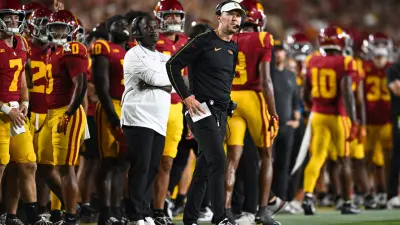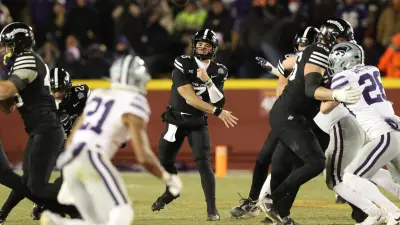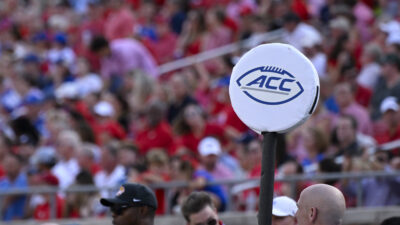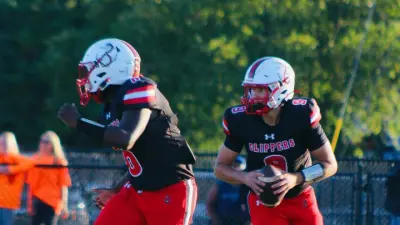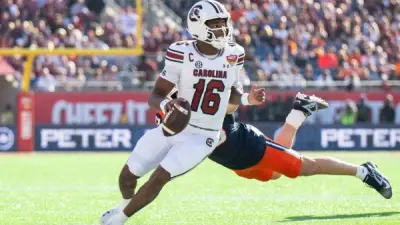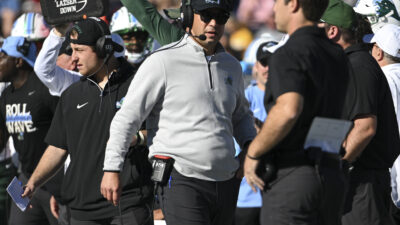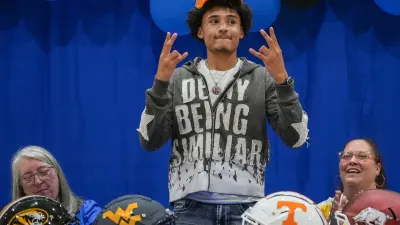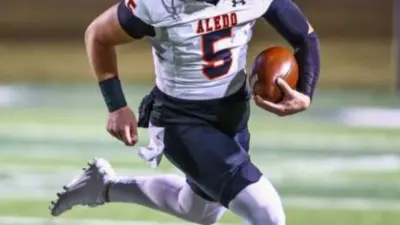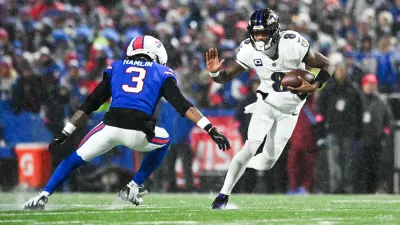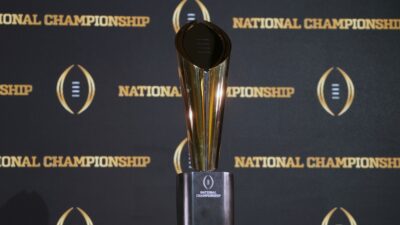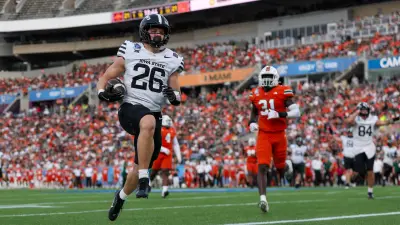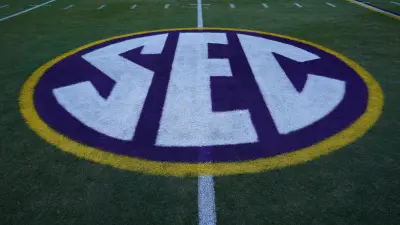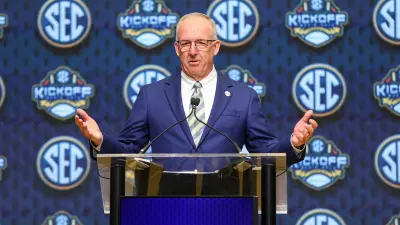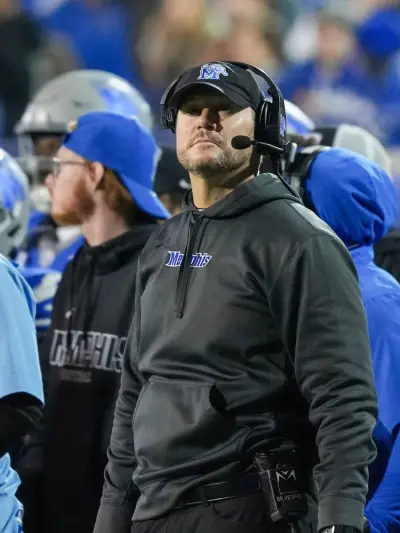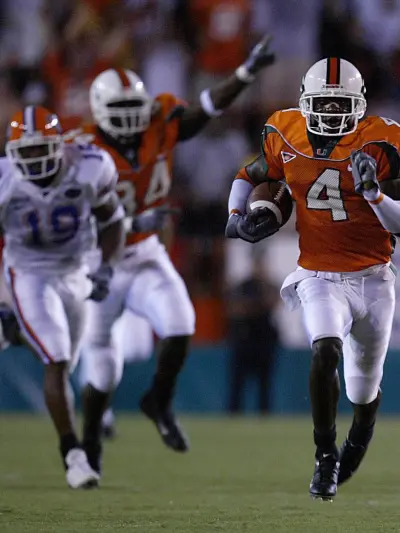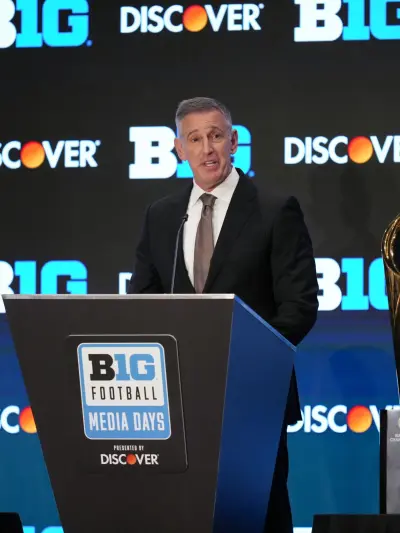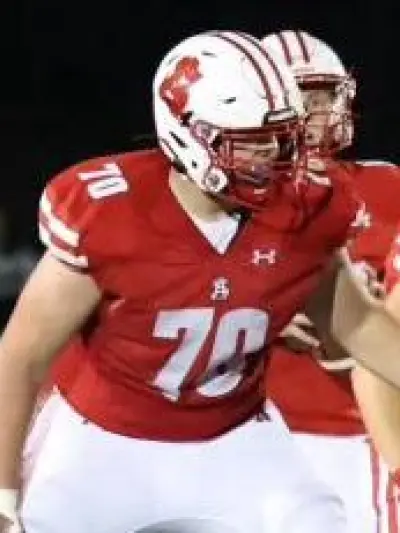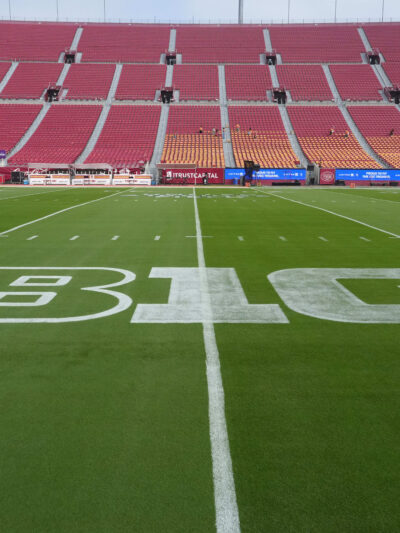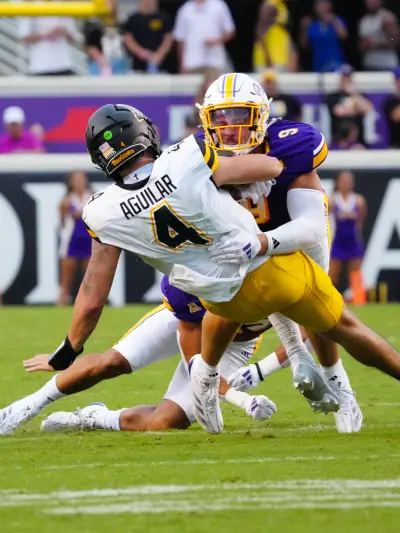by Kyle Golik
Southern California continued their winless ways in true road games this season after collapsing once again on the road in Seattle against Washington. The Trojans had rallied back from a 20-7 halftime deficit to take a slim 21-20 fourth quarter lead. It seemed Southern California would inch closer to bowl eligibility but a second half that had a backbreaking Miller Moss interception — his third of the day — and two drives that consumed much of the second half but stalled on fourth-and-goal situations, including one drive that Moss had three consecutive incompletions, has motivated head coach Lincoln Riley to make a quarterback change.
This week, during Southern California’s second bye of the season, Riley announced a quarterback change, benching Moss in favor of UNLV transfer Jayden Maiava.
“When we went back and looked at it, we felt like it was in the best interest of the team to give Jayden a chance here,” Riley said after Tuesday’s practice. “This is not a reflection of anything more than we have another good player in the room and we feel like he gives us a good opportunity. It’s really that simple.”
It is no secret that Moss has played behind a shaky offensive line and despite his impressive performance in last season’s Holiday Bowl, where Moss set a program record of six touchdown passes, as well as their Week 1 neutral site win over LSU, it has been an up-and-down season for Moss.
Since the collapse against Minnesota, the Trojans are 1-4, with Moss completing 63.7% of his passes, throwing 10 touchdowns and seven interceptions in those five games. During Moss’s first ten career starts as Trojans’ quarterback, Southern California has lost five fourth-quarter leads.
With the news of the switch, Riley expressed support for Moss in his explanation of the change:
More Sports News
“You could literally not change one thing that Miller’s done and we could be sitting here with a really, really good record right now,” Riley said. “Miller has done a very good job. He’s been a really good leader for this team. He’s been loyal to this program. He has worked hard, and he has done a lot of really good things on the football field.”
Riley hopes Maiava can bring more mobility and extend plays compared to Moss, who was more of a pure pocket passer. While many like to blame the Southern California offensive line—and yes, tackle play has struggled at times—the Trojans have allowed only 10 sacks through nine games, tying them for 21st in the nation.
You could question the decision-making of Moss, but he also had to deal with wide receivers dropping the ball in key situations. Some may argue, though, that it’s now Riley who’s dropping the ball in how he’s handled this change.
I get Maiava is more of a dual-threat and has a better ability to scramble, but Maiava, who was the Mountain West conference Freshman of the Year last season, put up numbers at UNLV similar to what Moss has done this year.
Riley has now created quite a mess in his quarterback room. Rumors are swirling that Moss intends to enter the transfer portal, with Michigan rumored as a potential landing spot.
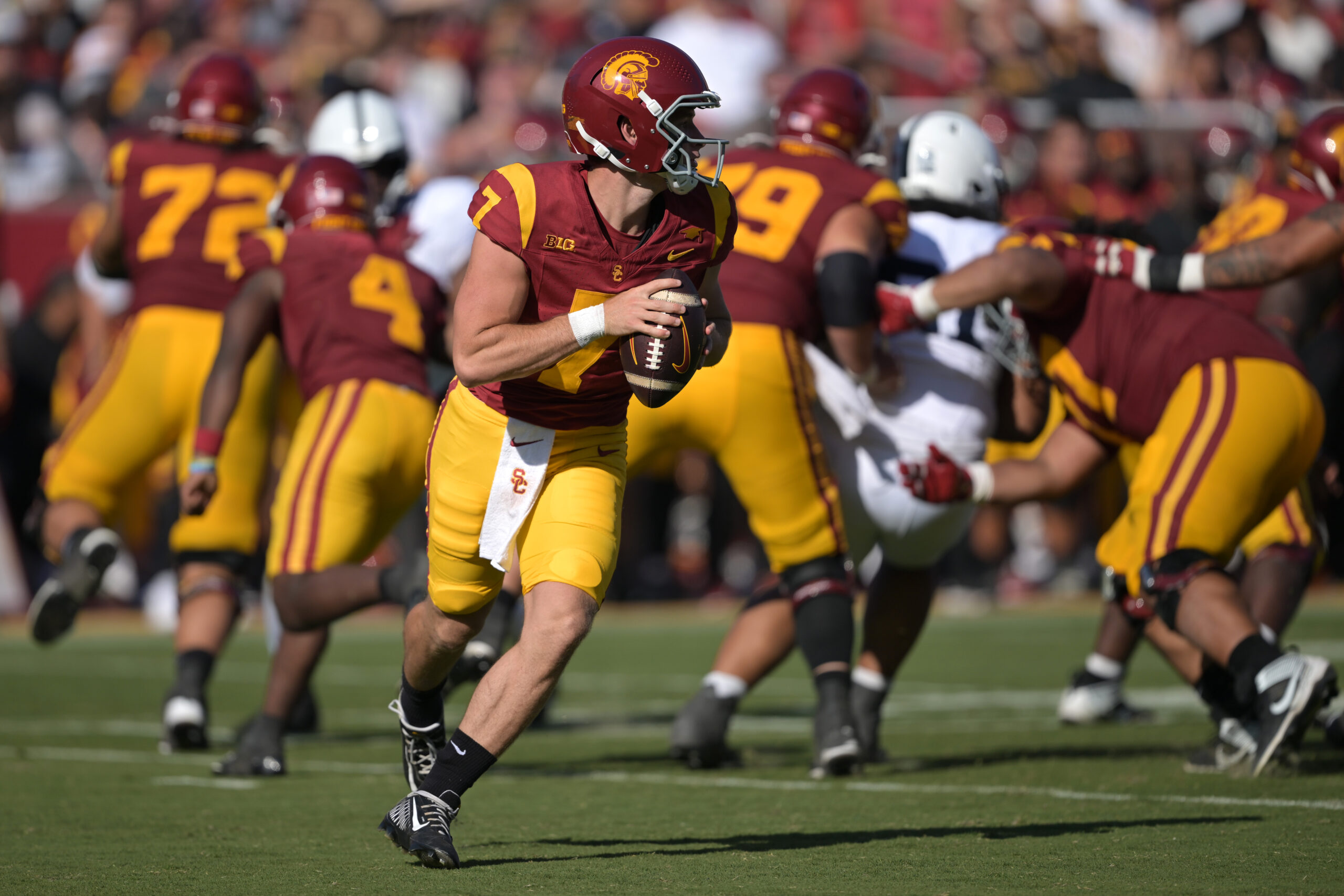
There is no doubt Riley is feeling the heat as the Trojans’ regression continues, especially in the area where Riley made his name as a big-time head coach: the offense. Big Ten play has proven that with better defenses, and more time-consuming offenses, the splash plays Riley relied on in the Big XII and Pac-12—where he scored 40 or more points a game—aren’t materializing.
I also feel Riley doesn’t have his personnel to execute his offense, which is concerning as we approach the end of Year 3 of his tenure at USC. Looking at the wide receiver corps, I don’t see a clear alpha among Ja’Kobi Lane, Makai Lemon, Zachariah Branch, and Duce Robinson. Each has the potential to lead, but so far, none of them has stepped up to meet that challenge.
You start to wonder if, with the dropped passes, Moss was ever truly set up for success. Riley knows this, and his decision to bench Moss feels like a move made out of desperation. In my view, Moss hasn’t played poorly enough to justify being benched. While he hasn’t always been clutch in key moments—such as the mistakes against Michigan, the late interception against Penn State, and the Washington game—a quarterback can only improve their decision-making in high-stakes situations by staying in those moments, not by sitting on the bench. This is a disservice to Moss’s maturation process.
Riley’s buyout is a major barrier, as it sits at $88 million. This essentially keeps him safe from any hot seat, since it’s unrealistic for Southern California to consider paying nearly nine figures to part ways with him.
Riley is being desperate, wanting to make a quick fix of a situation instead of working through it. The high expectations around Riley stemmed from his use of the portal to bring in immediate-impact players, masking the deep-rooted issues the Trojans have faced. This approach wasted Caleb Williams time in Southern California. Moss wasn’t in a better situation, but he earned the ability to work through it. Not everything was his fault, but he bears some responsibility, but his benching wasn’t warranted.
